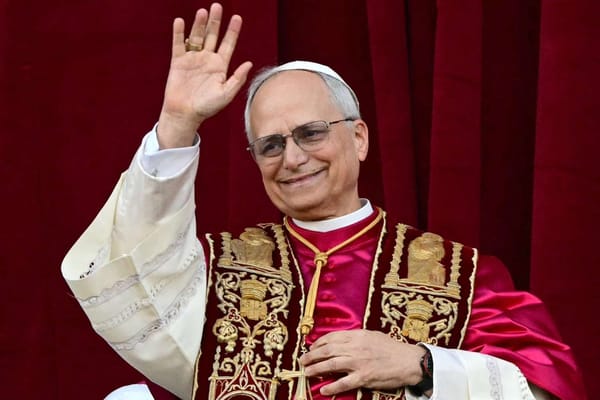St Anthony of Padua: greater than for finding lost objects


St Anthony is famous for being the saint that helps us find lost objects. "Dear St. Anthony please come around [name what is lost] is lost and it cannot be found” or “St. Anthony, perfect imitator of Jesus, who received from God the special power of restoring lost things, grant that I may find [name what is lost] which has been lost.” I have to admit that I have called on St Anthony to help me find lost objects after exhausting all possibilities and he always comes through. He has also helped my family members. The last time I asked for his help was when I lost my coat in a cold December day in NYC and I had searched all afternoon. It appeared in 30 minutes after asking for his help. It may be a silly thing to ask a saint for this help, but through his intercession God helps strengthen our faith in him and the communion of saints.
Before I went to college the deacon who visited my schools asked me to his home to share advise for my next stage in life. He gave me a book of daily meditations. One of the meditations had the story of St Anthony and I was moved by his life. I still have the book from Deacon Cundo and his wife Ramonita, may they rest in peace.
Who was St Anthony of Padua? His name was Fernando Martins de Bulhões and he was born in Portugal in the year 1195. He died in Padua, Italy at the young age of 35. At the age of 15 he entered an Augustinian community of priests to study. Years later he learned about a new community of Franciscan priests nearby and he was strongly attracted to the simple, humble, and evangelical lifestyle of the friars, whose order had been founded only 11 years prior. He was allowed to switch orders and become a Franciscan priest and changed his name to Anthony. One day he went to Morocco to convert non-believers, help the poor, and if needed, die a martyr. However, he felt very ill and had to return to Portugal. On the way back a storm blew the ship all the way to Italy. He stayed in various monasteries in Italy. Instead of dying in glory for God in Africa, he lived a life of prayer and penance helping people in their daily struggles. He instructed the heretics, performed miracles, and brought people closer to God. Sometimes we think we need to do amazing things for God, but doing the small daily things with love and a spirit of Service is all we need.
St Anthony was recognized for his powerful preaching, expert knowledge of scripture, and undying love and devotion to the poor and the sick; he was one of the most quickly canonized saints in church history. He’s typically portrayed holding the child Jesus, a lily, or a book—or all three—in his arms. St. Anthony of Padua’s life is an example for the life we all aspire to live with God’s graces: he peacefully faced the ups and downs of life including debilitating illnesses, he lovingly answered the call to love and forgive, and he devoted himself to helping those in need, whether in need of religious knowledge or of food. One time St Anthony was praying late at night when suddenly the room was filled with a very bright light. Jesus then appeared to St. Anthony under the form of a little child. A man named Chatenauneuf, attracted by the brilliant light that filled his house, was drawn to witness the vision but promised to tell no one of it until after St. Anthony’s death.
In 1222, in the town of Forli, a number of visiting Dominican friars were present for the occasion of an ordination, and a misunderstanding arose over who should preach. The Franciscans had expected that one of the Dominicans would occupy the pulpit, being renowned for their preaching. However, the Dominicans had come unprepared, thinking a Franciscan would be the homilist. In this quandary, the head of the hermitage, who did not think any of his own humble friars could give a homily for the occasion, called upon Anthony, whom he suspected was most qualified, and asked him to speak whatever the Holy Spirit might inspire. Anthony’s impromptu sermon created a deep impression on his audience. People were moved by the substance of his homily, his deep knowledge of Scripture, and the eloquence with which he delivered his message. His number one reason to be famous was his preaching and teaching - the Holy Spirit spoke through him. He taught in universities, worked with St Francis, and even assisted a Pope.
The traditional practice of praying for St. Anthony's help in finding lost things is traced to an incident during his lifetime that occurred in Bologna. According to the story, Anthony had a book of psalms that was important to him, as it contained his notes and comments for use in teaching his students. A novice who had chosen to leave had taken the psalter with him. When Anthony realized his psalter was missing, he prayed it would be found or returned, after which the thief was moved to not only return the book to Anthony, but also return to the order. The stolen book is said to be preserved in the Franciscan friary in Bologna
The story of Anthony "preaching to the fish,“ originated in Rimini, where he had gone to preach. When heretics treated him with contempt, Anthony was said to have gone to the shoreline, where he began to preach at the water's edge until a great crowd of fish was seen gathered before him. The people of the town flocked to see this marvel, after which Anthony charged them with the fact that the fish were more receptive to his message than the heretics of the church, at which point the people were moved to listen to his message. Another story took place in Toulouse, where Anthony was challenged by a heretic to prove the reality of the presence of Christ in the Eucharist. The man, who sought to mock Anthony, brought out a half-starved mule and showed it fresh food on one hand, and the sacramental host on the other. The mule was said to have ignored the food and, instead of eating either, bowed before the sacrament.
Anthony became sick with ergotism in 1231, and went to a woodland retreat with two other friars for a respite. There, he lived in a room built for him up under the branches of a walnut tree. People would gather below to hear him praise, pray, and preach. Anthony died on the way back to Padua on 13 June 1231 at the age of 35. St Anthony was a simple and humble friar who preached the Good News lovingly and with courage.
St Anthony has been known as the most celebrated of the followers of Francis of Assisi. He is the patron saint of Lisbon, Portugal and Padua, Italy and other places all over the world. In Portugal, Italy, France and Spain, St. Anthony is the patron saint of sailors and fishermen. Saint Anthony is known in Portugal, Spain, and Brazil as a marriage saint, because legends exist of him reconciling couples. In 1692, Spanish missionaries in North America came across a small Native American community along what was then known as the Yanaguana river on the feast day of Saint Anthony, June 13th The Franciscan chaplain, Father Massanet renamed the river in his honor, and eventually built a small mission church nearby. This mission became the focal point of a small community that eventually grew in size to become the seventh-largest city in the country, the US city of San Antonio, TX, where our daughter was born.
Quote from St Anthony on the humility of Jesus here
Prayer to St Anthony for inner peace here





